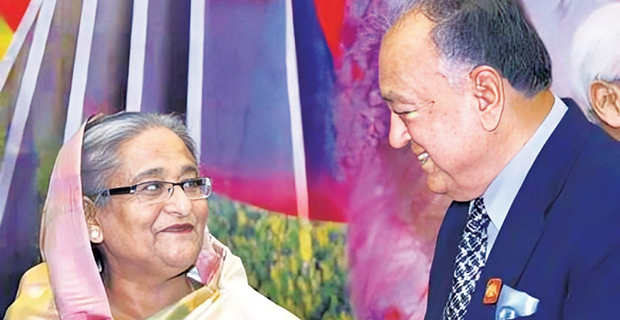HISTORIC NEGOTIATIONS
The year 1971 was marked by wars, conflicts, insurrections and coups across the world, but none perhaps more gut-wrenching than the Liberation War in erstwhile East Pakistan (modern day Bangladesh). It began with Operation Searchlight that culminated in an unprecedented genocide across East Pakistan by the occupying forces of West Pakistan on March 25, 1971. During this operation an estimated three million people were killed and over two hundred thousand women raped.
Following the genocide, war raged between the two sides. The resistance forces in East Pakistan united under the banner of Mukti Bahini that was backed by India. On December 3, 1971, as India prepared to move in with its army inside East Pakistan, the West Pakistanis made a preemptive strike called Operation Chengiz Khan. Nine Indian airbases and installations were attacked. India retaliated by moving in huge forces inside East Pakistan.
Around that time, the US led by President Richard Nixon was backing Pakistan’s military ruler Yahya Khan. Incited by Henry Kissinger—Nixon’s National Security Advisor whose dislike for India is well documented—the US Navy deployed its seventh fleet in the Bay of Bengal to intimidate Indian Prime Minister Indira Gandhi. Neither Gandhi, nor Nixon, shared the best of relations, especially given India’s pro-Soviet leanings at the height of the Cold War.
In the middle of all this, 29-year-old Indian Army officer Major Ashok Kumar Tara (later to become Col. Ashok Kumar Tara) found himself in a tight spot where he had to put his own life at stake and try and rescue the entire family of Sheikh Mujibur Rahman, the inspirational figure who secured East Pakistan’s independence from the diabolical clutches of West Pakistan. Bangabandhu, as Rahman came to be known, was himself in army custody in West Pakistan. His family members, on the other hand, were being held captive by Pakistan soldiers inside their house. They could be eliminated any moment. The clouds of imminent catastrophe loomed large over Dhanmondi, Dhaka, where the family lived.











Comments.